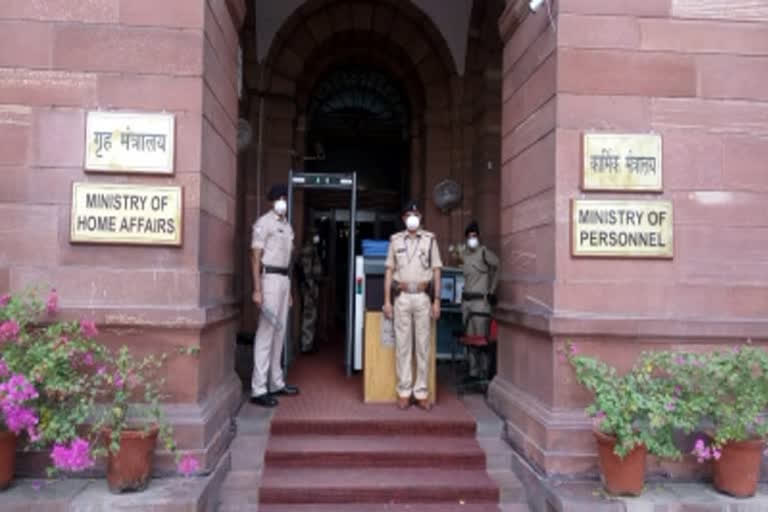New Delhi: A taskforce comprising senior officers constituted a few months back by the Home Ministry to look into cases of suicide in the central armed police forces (CAPFs) will also prepare a comprehensive report on incidents of fratricide, in which seven BSF personnel have been killed in two days, officials said on Monday. The panel will prepare a "case study analysis and recommendations" not only for cases where troops take the extreme step of taking their lives but also on the subject of the targeting of comrades-in-arms by a trooper.
The last few incidents of fratricides that took place in these forces will be taken into account, sources told the media. The committee has been holding meetings, the latest was last week. "The work is in progress," an official privy to the development said.
A draft report will first be prepared and circulated among the CAPFs for their final comments, following which it will be submitted to the Ministry of Home Affairs (MHA), a second official said. The taskforce is headed by IPS officer V S K Kaumudi, the special secretary (internal security) in the home ministry, with a special/additional director general rank officer each from the BSF, ITBP, CISF, SSB and Assam Rifles as the members of the panel.
CRPF DG Kuldiep Singh earlier headed the panel when it was constituted in December last year. Seven BSF personnel have been killed in two separate fratricide incidents that took place in Punjab and West Bengal on Sunday and Monday respectively. The media had first reported in December that the task force has been asked to draw a plan to "identify relevant risk factors and protective factors at the individual level; look at the existing and futuristic protective factors and study prevention strategies and also conduct research and interact with domain experts."
According to the December 2021 data shared by the government in Parliament, a total of 25 fratricide incidents have taken place in the CAPFs during 2019-2021. The highest number of these incidents took place in the CRPF (11) followed by the BSF (nine). The data did not say the number of deaths that took place in these incidents.
Government data updated till August last year showed a total of 680 CAPF or central paramilitary forces personnel died by suicide in the last six years. These numbers are over 700 now, a senior officer said.
The taskforce was asked by the Union home ministry to identify risk factors like "past suicidal attempt by the trooper, impulsivity as a personality trait, mental illness, alcohol or drugs abuse, aggressive tendencies, acute emotional crises, acute severe physical illness or chronic physical illness, acute stressful life events among others." They were to also find if "any changes or modifications can be done in the deployment pattern of the troops and some way in which access to mobile phones can be limited during deployment phases" to check instances where troops take the extreme step of ending their lives.
The panel of officers will also go through "protective factors" like the personnel having a strong relationship with family members; skills in problem-solving and conflict resolution; personal, social and religious beliefs and connections to spirituality. It has been suggested by the home ministry that the taskforce will also look into the aspects of improving awareness about suicide prevention, policies to reduce the harmful use of alcohol and drugs, and the importance of mental well-being, etc.
The panel will also devise plans to "screen" suicidal ideas or plans before and after a personnel avails leave. It will also look at training personnel to identify "vulnerable" colleagues and ways to address issues related to certain stigmas or taboo subjects. A senior CAPF officer said the issue of "frequently taking out CAPF companies from duty areas for the conduct of polls and for a variety of law and order duties was also taking a toll on the mental peace of personnel as those left behind had to fill in for those who have been sent away".
The CAPFs have a combined strength of over 10 lakh personnel and their troops are deployed in varied climes- with temperatures ranging from 50 degrees to as low as minus 40 degrees. They not only guard Indian borders but also undertake counter-terrorism, counter-insurgency and anti-Naxal operations during remote and continuously mobile deployments.
PTI



